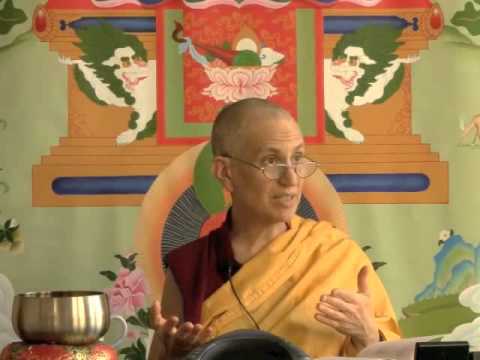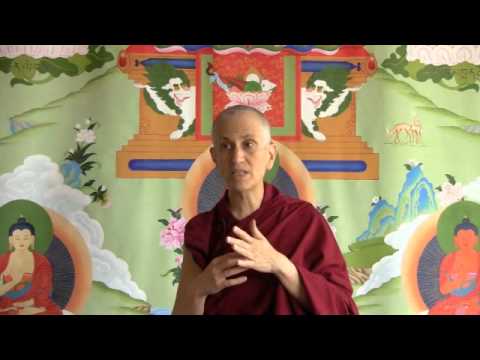Ethics, concentration, and wisdom
Stages of the Path #115: The Fourth Noble Truth
Part of a series of Bodhisattva's Breakfast Corner talks on the Stages of the Path (or Lamrim) as described in the Guru Puja text by Panchen Lama I Lobsang Chokyi Gyaltsen.
- Practices based on refuge
- Emphasizing the trainings in order, but practicing them at the same time
- Concentration and wisdom based on the foundation of ethics
We’re at the point in the text where we’ve talked about the first three of the four noble truths. Now we’re going to talk about the true path. In the general teachings the true path is explained at the three higher trainings and also as the noble eightfold path.
In the three higher trainings we have the higher training of ethical conduct, of concentration, and of wisdom. They’re called “higher” trainings because they are practices imbued with refuge in the Three Jewels, and with practicing the path as the Buddha laid it out. Most other faiths have some kind of training in ethical conduct, some kind of training in prayer or concentration of some sort, some kind of training in what they consider to be knowledge or wisdom, but what we’re studying here in the Buddhist path are the higher trainings because they’re the ones taught by the Buddha, and we as the recipients have a mind that has faith in the Buddha, Dharma, and Sangha, have gone to refuge in the Buddha, Dharma, and Sangha.
When we practice these three we begin with ethics, proceed to concentration, and then to wisdom. That doesn’t mean that we have to first perfectly complete ethical conduct before we go to concentration, and then master that completely before we go to wisdom. We actually practice all three at the same time, but we put (at the beginning) our emphasis on ethical conduct because it’s the basis for the other two. If we emphasize wisdom at the beginning, our practice is going to be out of balance. We’re going to make a lot of effort and not get anywhere, because we haven’t built the foundation of ethical conduct and concentration first. It’s important to put the emphasis in that order, and yet at the same time combine the three of them in our practice.
Tomorrow I’ll start talking about what those three are and why they’re in that order.
Venerable Thubten Chodron
Venerable Chodron emphasizes the practical application of Buddha’s teachings in our daily lives and is especially skilled at explaining them in ways easily understood and practiced by Westerners. She is well known for her warm, humorous, and lucid teachings. She was ordained as a Buddhist nun in 1977 by Kyabje Ling Rinpoche in Dharamsala, India, and in 1986 she received bhikshuni (full) ordination in Taiwan. Read her full bio.


